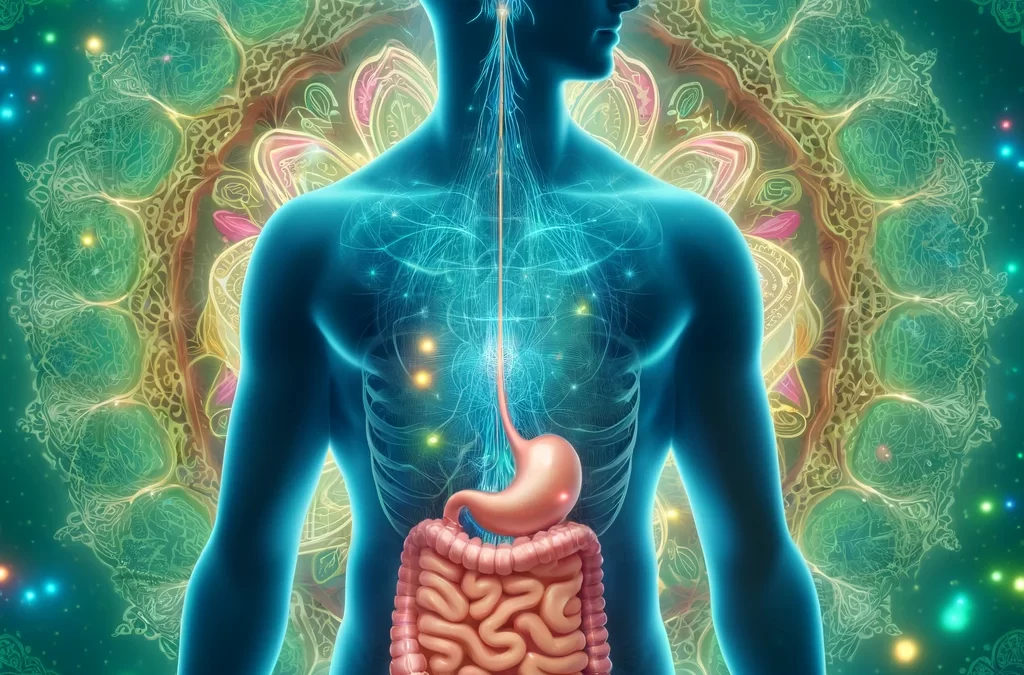Discover how your gut health directly influences your emotional well-being. Dive into the science behind the gut-mood connection, learn about key dietary strategies, and unlock the secrets to a healthier, happier life in our comprehensive guide.
When it comes to clinical nutrition, the connection between our gut and our mood has emerged as a fascinating area of exploration. Recent scientific research has shed light on the intricate interplay between the gut microbiome and the brain, revealing how our dietary choices and gut health can profoundly influence our emotional well-being. I discuss the deeper connections into the mechanisms at play and explore practical strategies for optimising gut health to support a happier, more balanced mood.
The Gut Microbiome: A Microscopic World of Diversity: Picture this: your gut is teeming with trillions of microorganisms—bacteria, viruses, fungi—that collectively form what is known as the gut microbiome. This diverse ecosystem is as unique as a fingerprint, with each individual harboring a distinct composition of microbial species. While some microbes are beneficial and contribute to our health, others can be detrimental if allowed to proliferate unchecked.
Microbial Communication: The Gut-Brain AxisThe gut and the brain are intricately connected via a bidirectional communication network known as the gut-brain axis. This communication occurs through various channels, including the vagus nerve, neurotransmitters, and immune signaling molecules. The gut microbiome plays a pivotal role in modulating this communication, influencing brain function, mood regulation, and stress responses.
Serotonin Synthesis in the Gut: Serotonin, often dubbed the “happy hormone,” is primarily associated with mood regulation and feelings of well-being. Surprisingly, approximately 90% of the body’s serotonin is synthesized in the gut, not the brain. Certain gut bacteria produce precursor molecules that are converted into serotonin by specialized cells in the intestinal lining. This gut-derived serotonin can then travel to the brain, where it exerts its mood-modulating effects.

Inflammation, Immunity, and Mood Disorders
Chronic, low-grade inflammation has been implicated in the pathogenesis of mood disorders such as depression and anxiety. Imbalances in the gut microbiome can contribute to increased intestinal permeability, allowing inflammatory molecules to enter the bloodstream and reach the brain. Once there, these molecules can trigger neuroinflammation, disrupt neurotransmitter function, and compromise mood regulation.

Stress Response and Gut Health
The gut microbiome also plays a crucial role in regulating the body’s response to stress. Stress can alter the composition of the gut microbiome, leading to dysbiosis—a state of imbalance characterized by an overgrowth of harmful bacteria and a decline in beneficial species. Conversely, certain probiotics have been shown to modulate the hypothalamic-pituitary-adrenal (HPA) axis, the body’s central stress response system, thereby reducing levels of stress hormones like cortisol.
Nurturing Your Gut for Better Mood
Given the profound impact of gut health on emotional well-being, prioritizing strategies to support a healthy gut microbiome is paramount. Here are some evidence-based approaches to consider:
- Dietary Diversity: Consume a wide variety of fiber-rich fruits, vegetables, whole grains, and legumes to nourish beneficial gut bacteria and promote microbial diversity.
- Prebiotics and Probiotics: Incorporate prebiotic-rich foods (e.g., garlic, onions, bananas) to fuel the growth of beneficial bacteria and consider supplementing with probiotics to restore microbial balance.
- Fermented Foods: Enjoy fermented foods like yogurt, kefir, sauerkraut, and kimchi, which are rich sources of probiotics and can support gut health.
- Mindful Eating: Practice mindful eating habits, such as chewing slowly and savoring each bite, to optimize digestion and nutrient absorption.
- Stress Management: Incorporate stress-reducing techniques like meditation, deep breathing exercises, yoga, and adequate sleep to support both gut health and emotional resilience.
